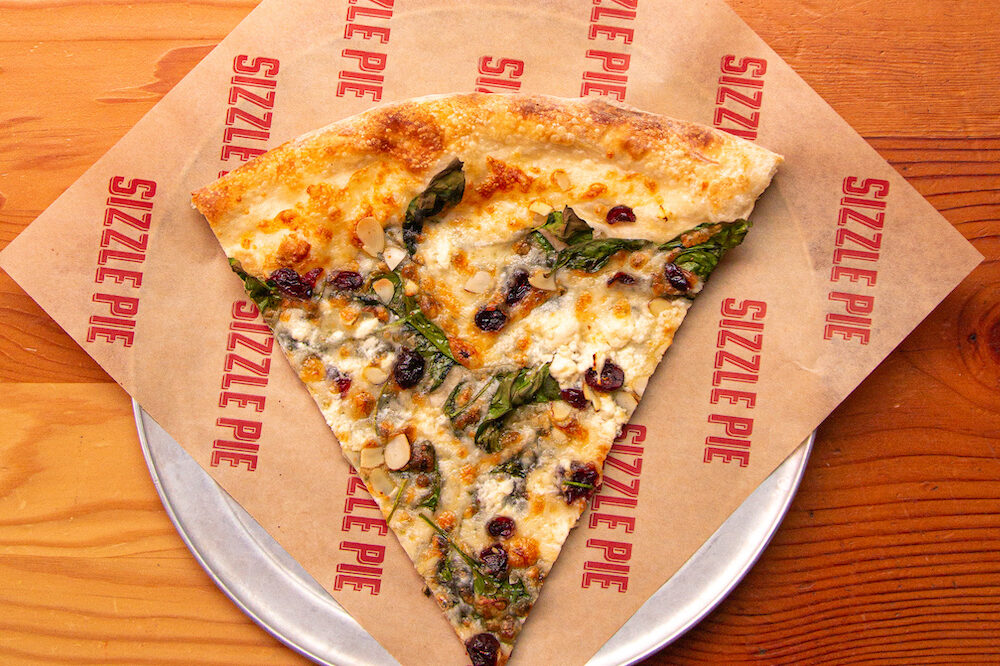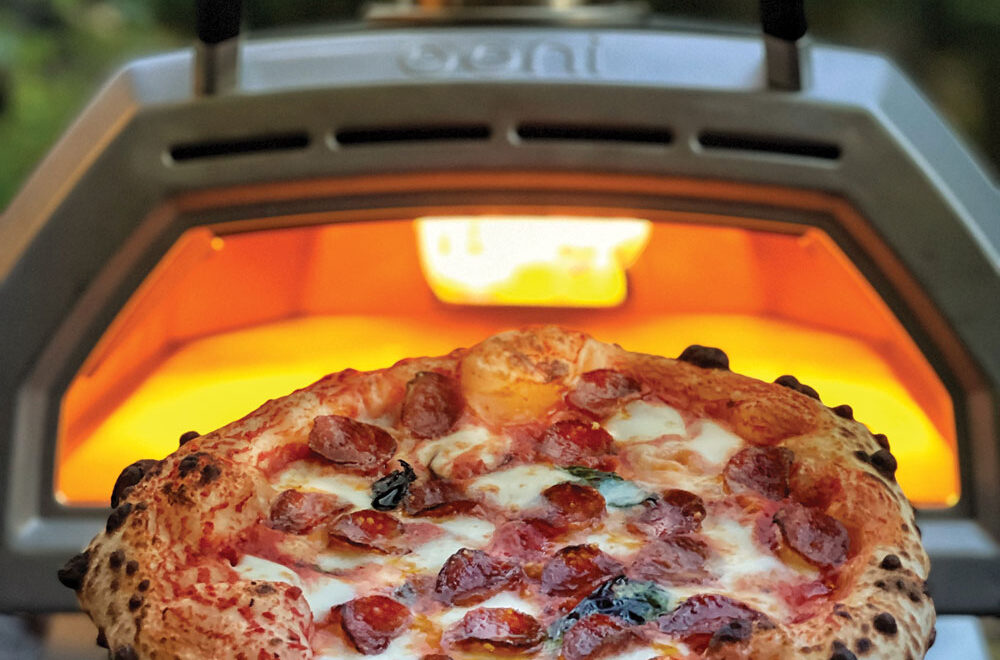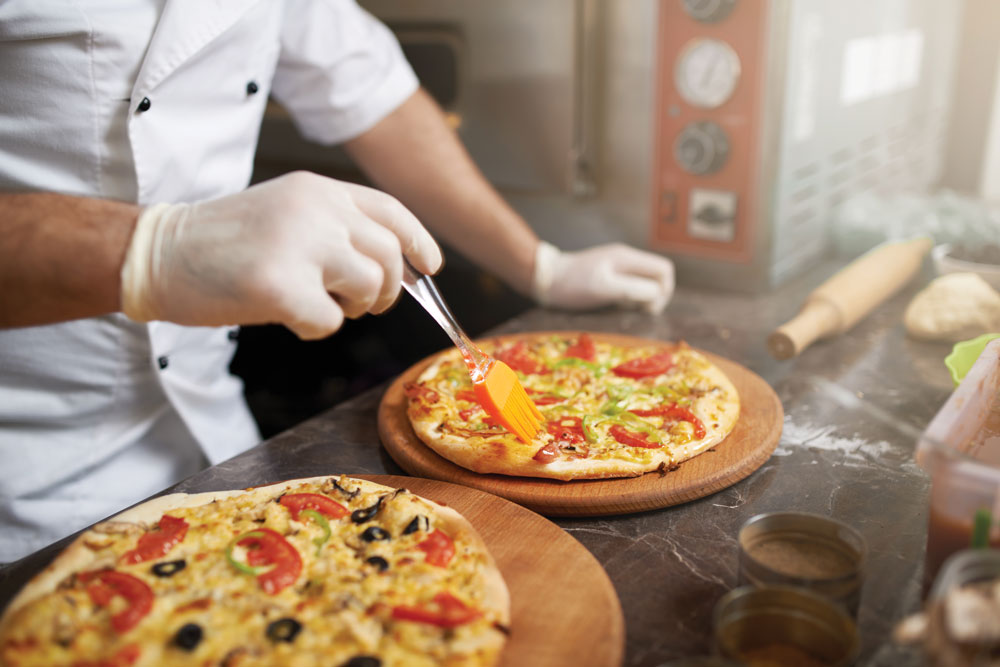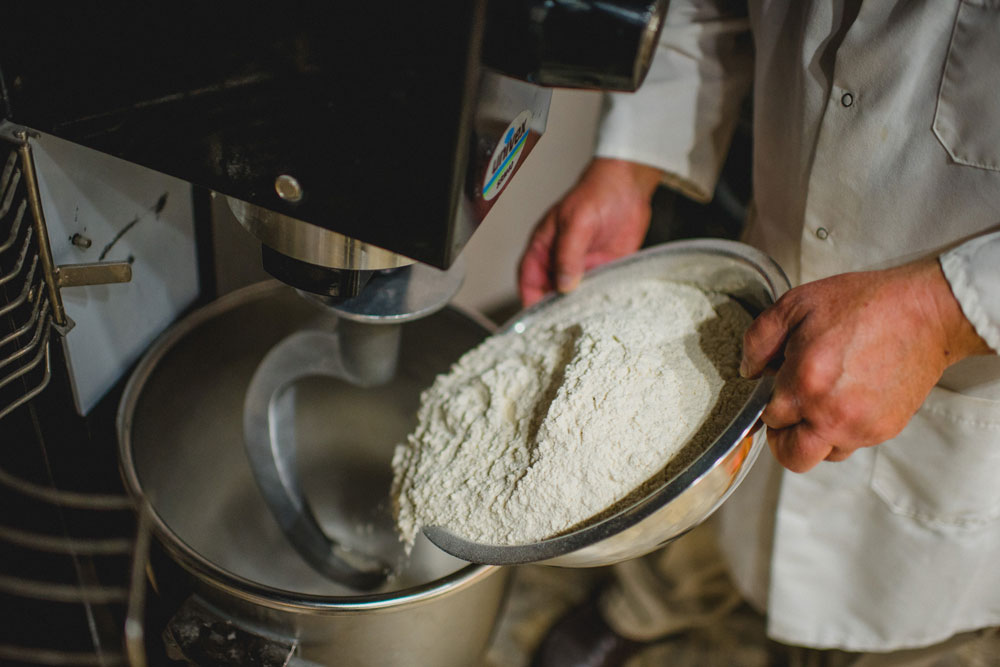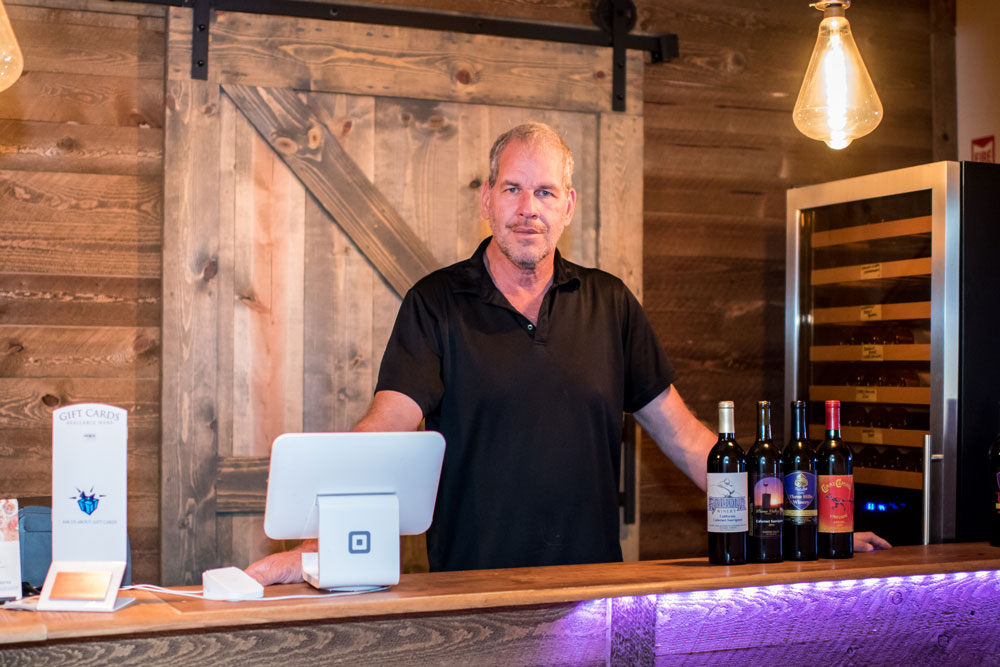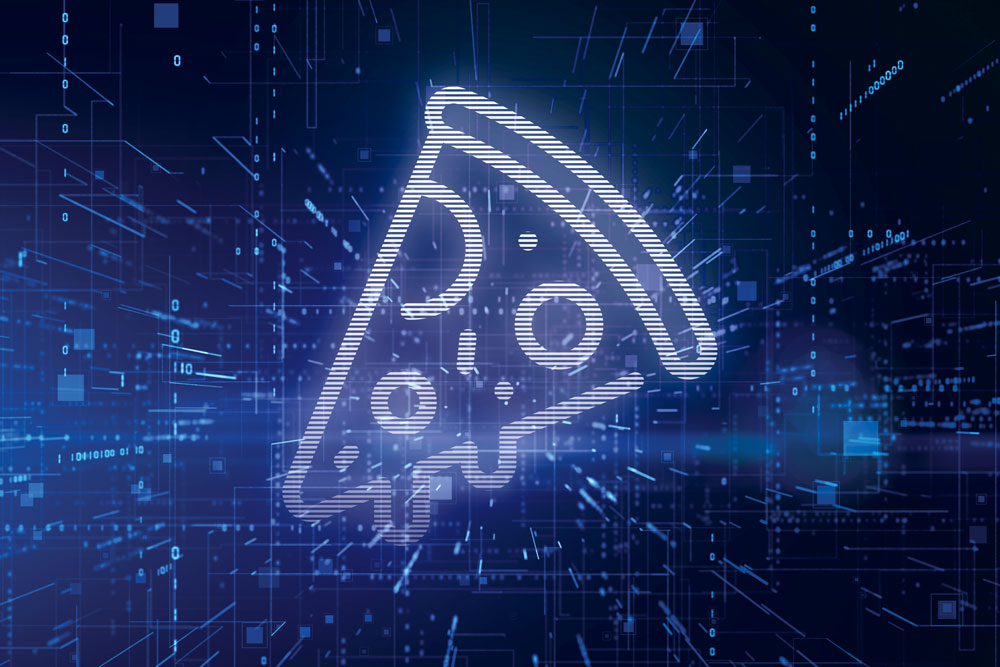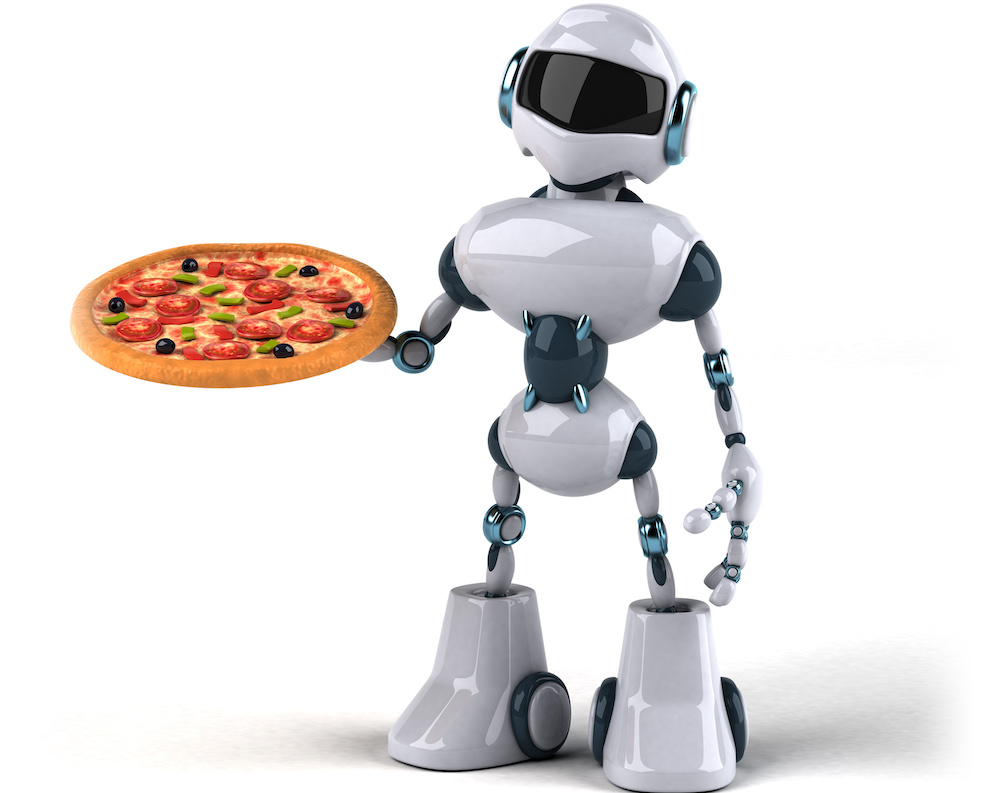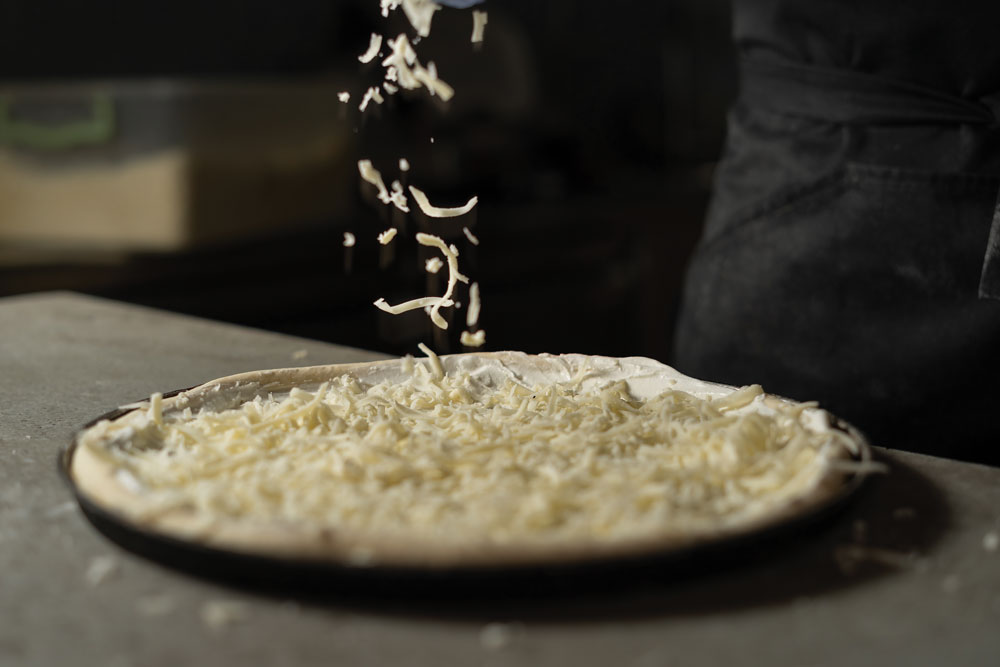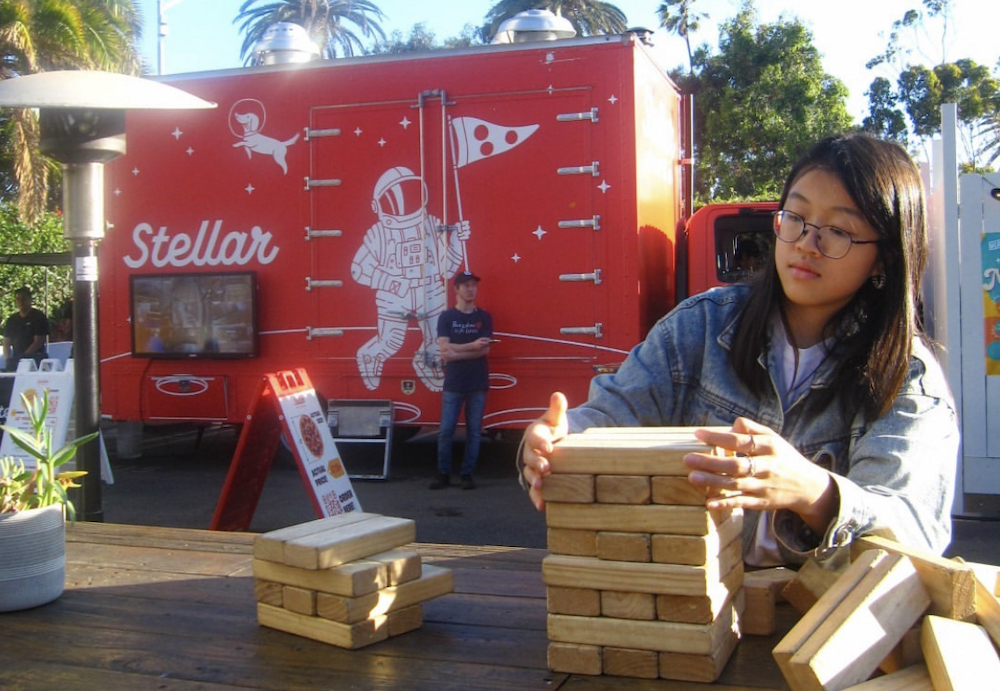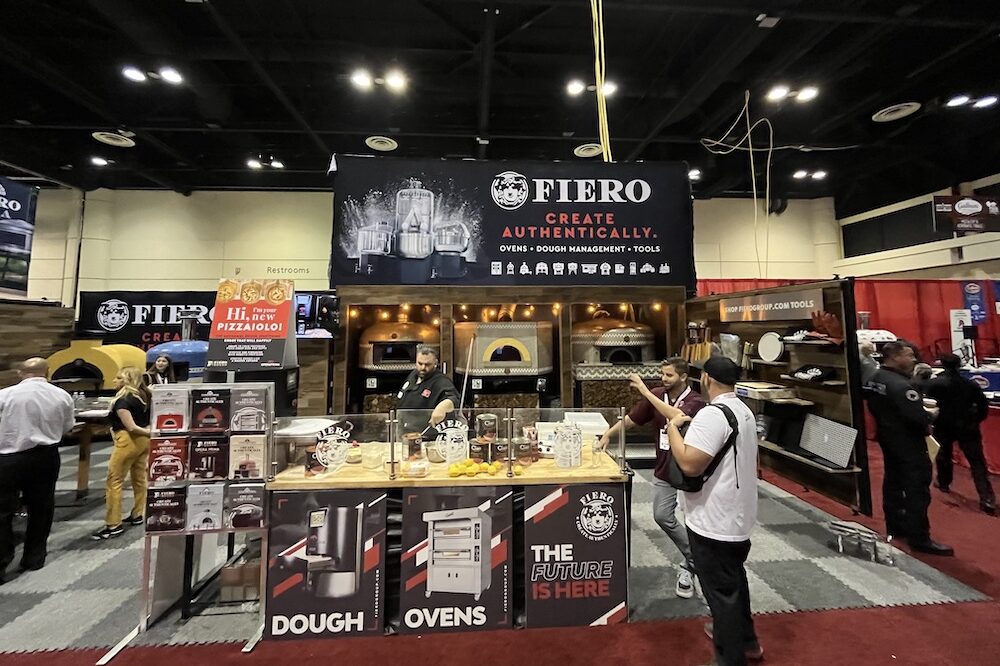Pizza vending machines aren’t exactly proliferating, but they’re gradually making headway as a convenient alternative to dine-in and delivery. From independent operators to major chains and even one frozen-pizza giant, the machines are opening new avenues to sell more pizza and look poised to make a major impact on the industry in the next few years.
The question now is, how will consumers take to pizzas made by a robot? Yes, with these high-tech kiosks, hungry people will be able to get pizza fast, cheap and just about anywhere, but is that what pizza lovers really want? And when automation proponents describe machine-made pizzas as “fresh,” are we looking at a revised definition of the word?
Pizza doesn’t get any fresher than the authentic Neapolitan fare offered straight from the oven by Atlanta Pizza Truck, owned by independent operators Alessio Lacco and Sofia Arango in Atlanta. But they’re thinking bigger than just a food truck nowadays. They recently announced a franchise opportunity built around Quickza pizza vending machines. As PMQ will report in greater detail in the October 2023 issue, Lacco and Arango are set to unveil two robotic Quickza machines this fall in Atlanta.
Related: Why pizza robots look to be crucial tools for the future
“We’re establishing relationships in Atlanta, and we want to franchise our model by partnering with other pizzerias in the United States and in other countries,” Lacco told PMQ. “We can work with them to create their own recipe for the vending machines, or they can use our recipe.”
The Quickza machines will feature the Atlanta Pizza Truck brand, but they can be customized for any restaurant, Lacco noted.
Meanwhile, pizza vending machine manufacturer PizzaForno, which describes itself as an “automated pizzeria chain,” has made its debut in Canada’s public transportation sector with Metrolinx, which handles operations of GO Transit, UP Express and PRESTO, with more than 400,000 buses and trains and 100 million-plus commuters.
According to a press release, the partnership launched in mid-September, with PizzaForno kiosks installed at the 407 Bus Terminal and Weston GO & UP Station, both in Ontario. That means thousands of riders every day can grab a pizza that’s ready in three minutes, any time of the day or night.
The collaboration marks Metrolinx’s first automated hot-pizza option, but it might not be the last: Additional kiosks are expected to be announced at GO Transit stations in the coming months, according to PizzaForno.
“This is the world’s first agreement of its kind with a public transit operator in Canada and further strengthens PizzaForno’s leadership position in the automated food space in North America,” said Les Tomlin, co-founder and president of PizzaForno.
Related: Rebel Robots: Dining hall pizza goes high-tech at Ole Miss
Tomlin also made a bold prediction: “We are well on our way to becoming the fastest-growing pizza chain in North America by 2024.”
Then, again, DiGiorno, the frozen-pizza brand, has plans of its own for pizza vending machines. Earlier this summer, the company began testing two pizza kiosks—one at a Walmart store in Colorado and another one on the Nestlé company’s Ohio campus. The machines will bake and dispense premade 10” thin-crust pizzas for $9 each.
“After a lot of searching…we did manage to partner with a hot pizza vendor to co-create, if you will, a hot pizza vending machine where a consumer can actually walk up to the touchscreen, they can pick the type of pizza they want, and have it, hot and ready, within a matter of a few minutes,” said Bill Marks, a product development specialist with DiGiorno, in a video posted in July on The Spoon’s website.
So what about the traditional pizza chains? As PMQ has previously reported, Donatos Pizza, with 434 stores in 27 states, is designing a vending machine of its own. In a September 13 story in Nation’s Restaurant News (NRN), Donatos CEO Tom Krouse noted that his father-in-law, Donatos founder Jim Grote, “had a pickup window before anybody had pickup windows. He was kind of an innovator in that world.”
Grote and his team of engineers at Donatos’ Innovation Hub, including students from Ohio State University, are also busy designing a machine that will sauce a pizza.
What does this emphasis on technology and automation mean for employees at Donatos, a chain that prides itself on following the Golden Rule and “agape capitalism”—using business to do good things in the world? Krouse said the machines are meant to make it easier for staffers to do their jobs, not eliminate their positions. “Goodwill starts in the kitchen,” he told NRN. “It’s the basis for what makes this brand work.”


